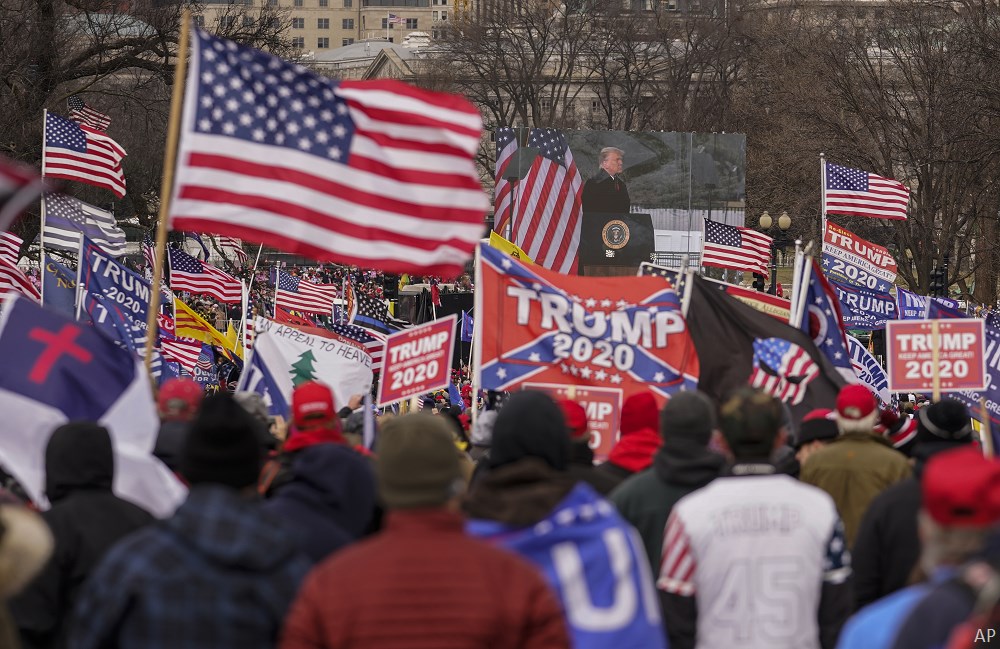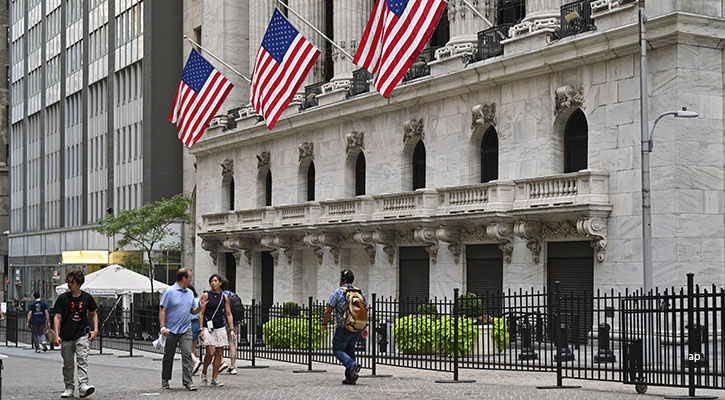
We expect responses to the Jan. 6 riot at the U.S. Capitol will have only a slight impact on the legal and political standing and operations of social media companies like Twitter, Facebook, Snap , Pinterest, and Alphabet.
We do not believe the decisions to eliminate President Donald Trump’s personal accounts or moderate Trump-related content more aggressively will result in the repeal of or drastic changes to Section 230 of the Communications Decency Act, which offers immunity from liability for Internet content.
Twitter has taken the biggest hit of these companies in terms of app download rankings. In our view, its decision to permanently delete Trump’s personal account will modestly affect the platform’s network effect. On the other hand, we think that with increasing content moderation, brand advertisers may view Twitter and Facebook apps in particular as safer to market on.
Google’s decision to no longer provide the Parler app through its Google Play app store appears to be in line with the company’s policies. However, the death of the Parler app due to Amazon’s decision to no longer host it on its cloud creates slight risk for Google’s cloud business as decentralization may become a topic of cloud conversations.
We have not made any changes to our projections and fair value estimates for Facebook, Alphabet, Twitter, Snap, or Pinterest. We continue to view Twitter, Snap, and Pinterest as overvalued. We recommend waiting for a slight pullback in Alphabet and Facebook before allocating new capital to those names as they are currently trading in 3-star territory.
Are Companies Legally in the Clear?
Legally, in our view, social media companies currently have strong support from Section 230, which we think is likely to remain intact under the new administration and Congress. While the riot was not expected, its occurrence supports the argument that various accounts and/or content on social media platforms may have incited the break-in and violence at the Capitol. For this reason, accounts were deleted or made inactive, and content was controlled a bit more. Even with the more aggressive moderation of content and accounts, including Trump’s personal account, the companies are still viewed as distributors and not publishers, which means they still have the Section 230 protection from liability.
With regard to claims that the companies’ actions violate the First Amendment guarantee of free speech, we think the same justification used in the Section 230 argument is applicable. If some accounts on Twitter and Facebook posted content that stoked the violent acts on Jan. 6, this speech is akin to yelling “fire” in a crowded theater. We believe that these companies, as privately owned businesses, are well within their rights to restrict this type of speech.
Trump Ban
In our view, Trump’s permanent ban will affect Twitter’s network effect as some Trump supporters probably began (or will begin) to use other apps such as Parler and CloutHub. The number of Trump supporters on Twitter (approximately 89 million before the account was banned) certainly is not a small number. While many of his supporters will continue to use Twitter to reach a broad audience or explore other interests, they may spend less time interacting on the platform.
While user growth and/or interaction may slow a bit, some brands may consider Twitter without a Trump account a safer platform for brand advertising over the long term. However, given that Twitter’s permanent ban of the Trump account may be viewed by users as even more politically biased than expected, large brand advertisers may reduce spending on Twitter in the short term as they do not want to be perceived as bluntly taking political sides.
In addition, Apple and Google have announced that the Twitter substitute Parler is no longer available on their app stores for download. Google’s decision was based on what it viewed as Parler’s lack of content moderation even after the riot took place. And now Parler is no longer operational, as Amazon decided to stop hosting the app on its cloud service, AWS.
Risks to Cloud
We think Amazon’s decision may create a risk for the overall cloud market, including Google’s cloud platform, as it demonstrates the enormous control that cloud providers potentially have over their clients’ businesses. A move to reconsider cloud strategies, which we think is not very likely in the short term, could slightly affect Google’s cloud revenue growth, which we expect to average 35% annually through 2024.
We note that other cloud providers have taken actions similar to Amazon in the past without creating a lack of trust in the cloud nor decelerating the transition to the cloud. For example, in 2019, Cloudflare decided to no longer provide security services for 8chan, a message board on which the El Paso mass shooter, who killed 23 people, had posted his manifesto. However, Amazon’s decision may have some impact on Google, given Amazon’s current market leadership and well-recognized brand in the cloud market.
Regarding Facebook, which along with Google continues to face political and antitrust pressures, we think the political impact of suspending Trump’s account could be slightly positive. Given that the Democrats will control the White House and Congress, Facebook’s move could be the company’s signal to lawmakers that neither significant changes to Section 230 nor radical data privacy and security regulations are necessary, as distributors like Facebook are already doing their best to oversee and moderate content. However, we do not think actions taken by Facebook or Google will affect possible outcomes of the antitrust suits that both companies face.
Similar to Twitter, over time some consumer brands may find the Facebook platforms (and their billions of eyeballs) safer, which could result in higher brand ad spending. In addition, we think the Facebook network effect moat source faces only minimal risk. The Trump account suspension could drive anti-Trump users back to Facebook, although that might take time. It could also drive away pro-Trump users, and some of their family members, friends, or associates may follow. The net result of this is basically minimal change in the number of Facebook users and the company’s network effect. Early indications of this include the fact that last week, Facebook downloads in the U.S. from Apple’s App Store remained in the top 10 even after Parler took the number 1 position on Jan. 8. Google’s YouTube was also not affected much as it maintained its position in the top 5 throughout the week. However, Snapchat was pushed out of the top 10 ranking temporarily on Jan. 9 for the first time since mid-December 2020 and ended the week a couple of spots lower than its 90-day average. Pinterest’s ranking fell four spots throughout the last seven days to 36, in line with its 90-day average.












.png)











